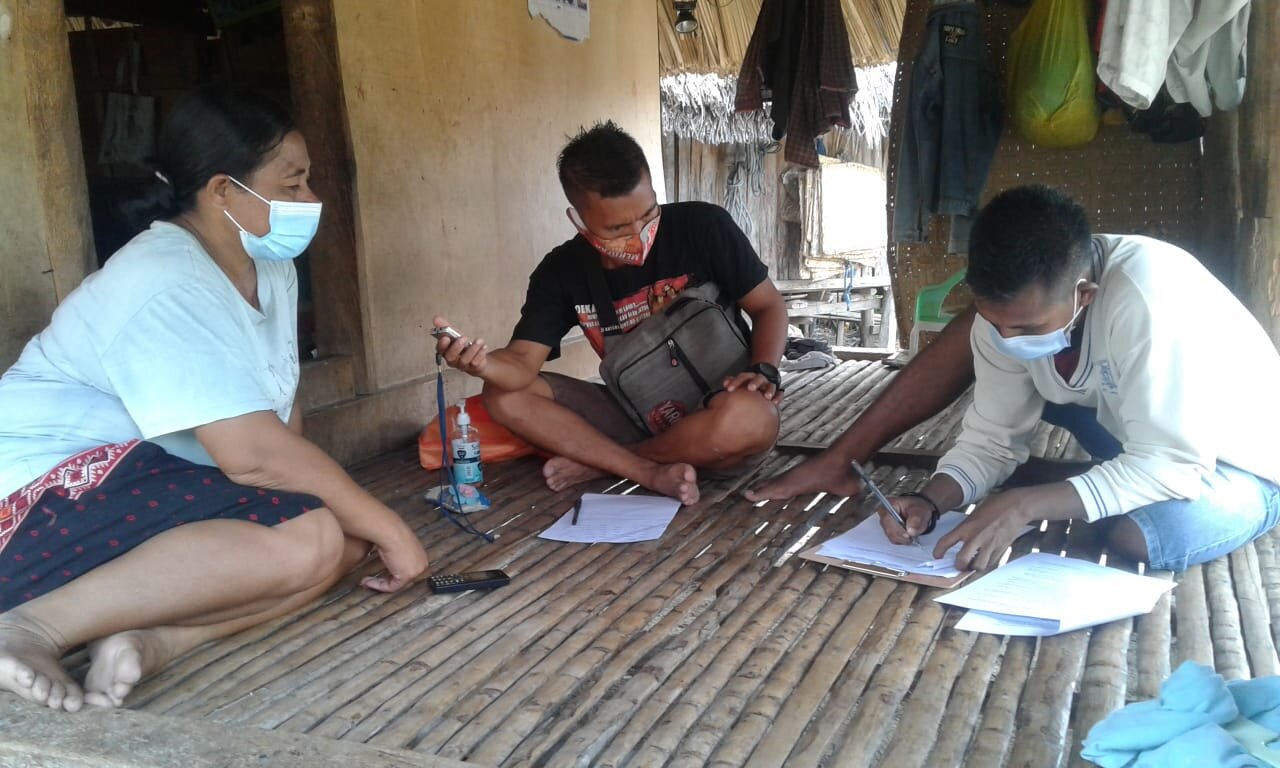Learning leadership and building solutions
Conducting research in the midst of a global pandemic has challenged each one of the recipients of ACIAR ARSF project funding, no matter the country or context. It has demanded adaptability, determination and leadership, often in the face of personal risk.
But Meryl Williams Fellow, social scientist Melinda Moata, says she has been constantly guided by a simple quotation: "Do not stop when you are tired, but stop when you are done". Not even contracting COVID-19 herself or experiencing a tropical cyclone has distracted Melinda from her work.
"Food system resilience during a crisis is especially crucial for resource-limited people, I am determined to play my part in dealing with the current situation, but also in helping to prevent future crises."



Melinda's research - into how social capital helps vulnerable women to maintain resilient food systems- is well advanced. She and her team have interviewed 80 women in four parts of Indonesia to gain a better understanding of how this social capital has impacted their ability to put food on the table during this most difficult of times.
Women are commonly small-scale producers, who sell their produce at markets, as well as the primary shoppers.
While she is still analysing the data, Melinda has discovered that women have been resourceful in securing food for their families - doing everything from working alongside their husbands and establishing their own businesses to home gardening and accepting food donations. Apart from simply being thrifty and using what food is available, some have also had to rely on their savings, take out loans and even pawn their belongings.
Lockdowns forced the research team to switch locations, and concerns about the transmission of COVID-19 and local politics meant some women were unprepared to be interviewed. Heavy rains, accompanied by landslides and flooding, further complicated data collection, which was postponed by the need to select and train enumerators in a COVID-19 safe manner. Add to that the cost of masks, face shields and hand sanitiser, and Melinda found herself contending with a number of challenges.
Her position as vice-director of public relations, publications and collaboration, put Melinda at high risk of contracting COVID-19. Indeed, Melinda's entire family became infected in March, they are fortunately now fully recovered - and then a tropical cyclone cut power and Internet connections for several weeks.
Through it all, Melinda remained dedicated to her research. And the preliminary results from Kupang City are proving revealing. Melinda has found that Indonesian women in the city relied on four main networks - their church, family, WhatsApp and neighbours - to develop and build their social capital. Those who used both formal and informal means of sustaining social capital were found to be more capable of finding solutions in the face of the pandemic.
"Social capital provides a bridge for these women to connect with more groups," Melinda says. "It enriches them with new skills and opens up new markets for their products. By optimising their use of social capital, these women faced the crisis more confidently, and their actions simultaneously enhanced their food system resilience.
"The second category of women chose not to actively build social capital and, instead, to decrease their food consumption in the hope that the crisis would soon end. They were relying on subsidies delivered by the local and national government and other institutions for their family to survive. It placed them in an even more volatile situation."
The research suggests that empowering women through their social connections will help to improve their adaptability - and food security - during future crises.
But the lessons have not been confined to the research effort itself. Melinda says she has faced immense personal challenges as the impacts of the pandemic have worsened.
"As a researcher, my soul keeps calling me to keep researching, to find solutions to help our community," she said. "Delaying the work is not an option. As the conditions have worsened, I have had to keep employing safety measures and sometimes slowing our progress to achieve our goals.
"As part of our career development, we sometimes have to change direction, depending on the circumstances, and be open to learning something new. This research project has been a really big challenge for my leadership. I've had to find solutions to problems in an emergency and work in high-risk situations. I've learnt to be flexible, but still maintain the quality and purpose of the research.
"I am satisfied with the way I have met the challenges. I have learnt new things, made new friends, and expanded my own network and social capital. It has been a great opportunity to reflect on the messages of the Meryl Williams Fellowship program."
Melinda presented some of her initial results virtually at the Australian Agricultural and Resources Economics Society (AARES) international conference in February. She hopes to complete her research in July, which is a significant achievement given the continuing high rates of COVID infection in Indonesia.



Written by Amanda Burdon
The Alumni Research Support Facility (ARSF) was announced by ACIAR in April 2020 as a swift response to the COVID-19 pandemic. The ARSF enables research projects that build resilience and respond to the challenges the pandemic has presented to agriculture systems in ACIAR partner countries. Each ARSF project is matched with an Australian collaborator who works with the ACIAR alumni to build the research team's capacity and provide mentorship and guidance where needed.
Through the ARSF program, ACIAR has been able to continue investing in global research collaborations as well as scientific and policy capacity building activities in a way that directly addresses the challenges posed by the COVID-19 pandemic. The ARSF is delivering the knowledge and technologies that underpin more productive and sustainable agricultural systems and more resilient food systems, for the benefit of developing countries and Australia.
